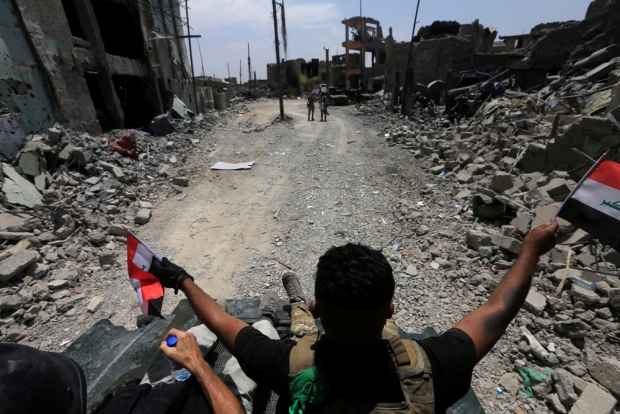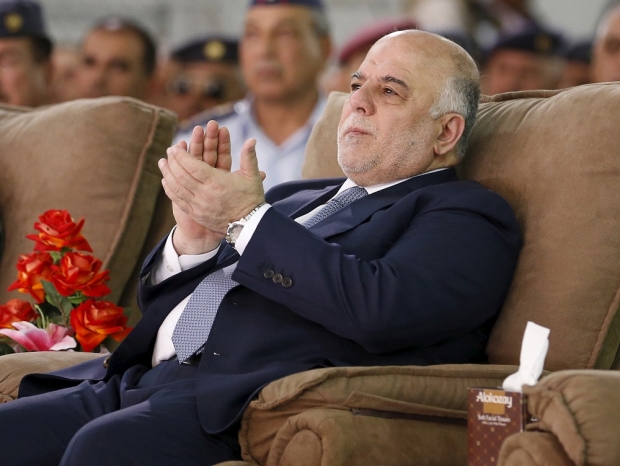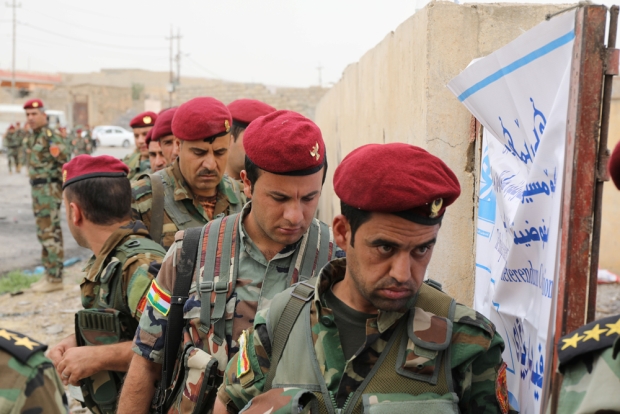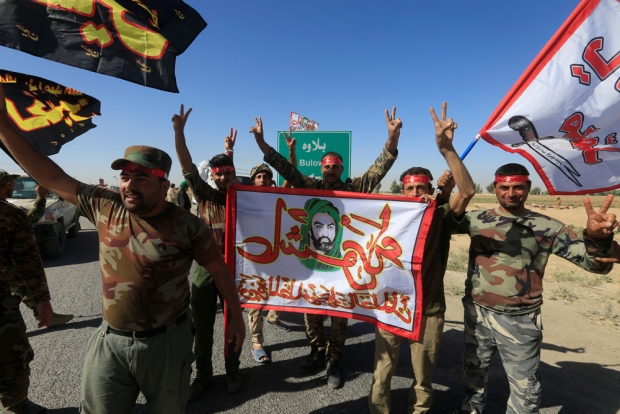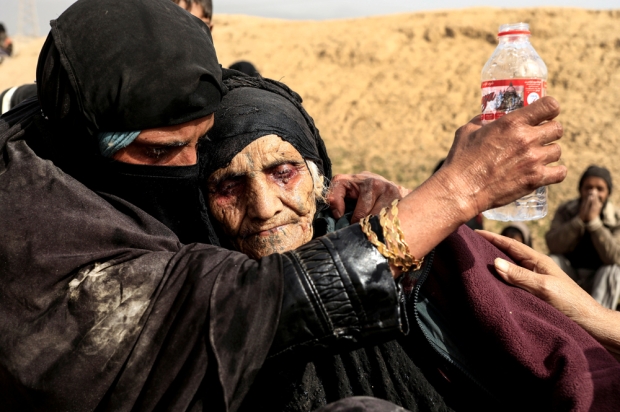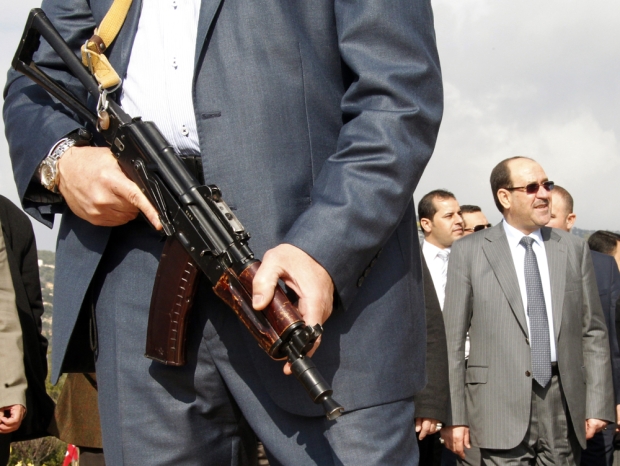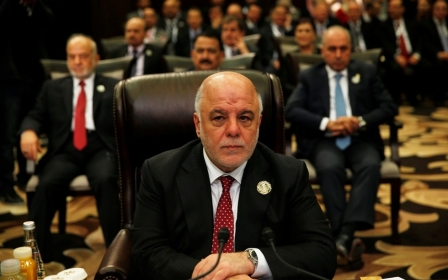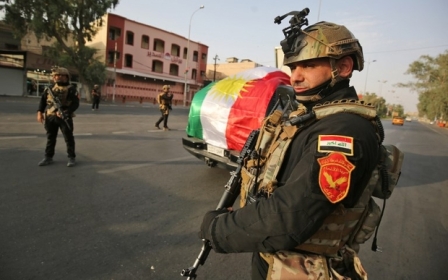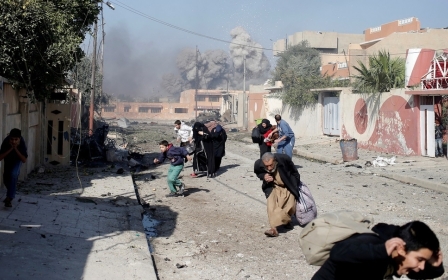Haider al-Abadi, the 'weak and sluggish' man who rose to tower over Iraq
BAGHDAD - Haider al-Abadi entered power as the "compromise" prime minister, thrust upon a nation by a political system in crisis which had no other answer. He was, said detractors in his own party, a "weak" man, a "sluggish" apparatchik who had displayed none of the qualities needed to save his country.
Almost a third of Iraq was in the hands of the Islamic State group, the security establishment was in disarray, the state treasury empty, and parliament riven by political and sectarian divisions stoked by his predecessor, Nouri al-Maliki, and cursed by corruption.
There are serious challenges in our way. But we must restore confidence
- Haider al-Abadi
For a man who once ran a company servicing lifts while in exile in London, Abadi's elevation was remarkable.
"I realise there are so many difficulties blocking our way," Abadi said in August 2014, in a nervy first news conference as prime minister only months after IS had walked into Mosul. "There are serious challenges in our way. But we must restore confidence."
Three years later, Iraq's prime minister has arguably done just that, and more. The army - in 2014 weak and humiliated by IS - has been restructured and reshaped into a fighting force that, with significant international backing, did the dirty work to roll back IS from almost all the territory it held when he took office.
He has, in recent weeks, called the Iraqi Kurds' bluff over their attempts to secede from Iraq, driven Kurdish forces from contested areas outside the Kurdish region's original 2003 borders, including Kirkuk, and regained the crucial northern oil fields.
All of this has, for the first time in a long time, led to adulation for an Iraqi leader from their own people.
"Abadi received Iraq with 13 provinces and the brought it back with 15," Shujaa al-Khafaji of Baghdad wrote on his page in Facebook.
"Tell Arabs that now we have a man of state, a constitution and victories to talk about," said another Facebook user, Rachel Correi from Mosul.
Abadi, the "compromise" whose appointment many in his own Shia State of Law parliamentary bloc opposed, a man ruthlessly mocked and compared to "Dambi" - a short, pot-bellied and bumbling Japanese cartoon character - has proved himself the country's strongest leader since the 2003 invasion.
But this strength has not come through tyrannical, revolutionary, do-or-die politics, the default setting for decades in Iraq.
Three Iraqi analysts spoken to by Middle East Eye paint a picture of Abadi's ways building over his decades as a political underling, where the inner workings of government were studied, power circles pinpointed and potential rivals placated rather than destroyed.
"Abadi is the son of this system," said Abdulwahid Tuama, an Iraqi political analyst. "He emerged from the same political and governmental society of this system and knows all its secrets and keys.
"He has been using his accumulated political and governmental experiences to defuse crises, address problems and find solutions."
Iraq's politics have been dominated by ostentatious display. Abadi shuns the limelight. That's the difference
- Rahman al-Jabori, National Endowment for Democracy researcher
Rahman al-Jobori, a senior researcher at the National Endowment for Democracy, based in the US, agreed: "Abadi presented a new model for political conflict in Iraq.
"Iraq's politics have for decades been dominated by ostentatious display. Abadi works quietly and shuns the limelight. That's the difference."
Abdulkareem Khalaf, a general and the former commander of operations of the interior ministry, said: "Abadi is committed, calm and does not rush into decisions.
"He consults experts as well as his own team, he sits with them, listens to what they have and then decides."
Friends in high places
But none of this would be effective without significant international support. Abadi, while promoted under an Iraqi government deal, was Washington's man: brought in with American support to tackle the rampant corruption and sectarianism that was so prevalent under Maliki's leadership.
In early 2016 Mishan al-Jabouri, a Sunni politician, framed the problem in very personal terms: “Everybody is corrupt. Including me ... at least I am honest about it. I was offered $5 million by someone to stop investigating him. I took it, and continued prosecuting him anyway.”
Abadi was a "good guy" and the best of a bad hand, the Sunni politician said. "He is cleaner than so many in parliament. But he cannot do this. Nobody can."
US generals in Iraq are fans of the "great guy," a fluent Anglophone who acts as a direct interlocutor.
"Generals, officers and the ambassador respect him, and have showed that they are dealing with him as a partner not a vassal," said Kadhim al-Waeli, an Iraqi former member of the command of Operation Resolve, the multinational anti-IS mission in Iraq.
"The generals love him because he is calm and calculates everything. Some have said he works like a human computer."
An everyman. Iran's man. America's man
Also crucial, undoubtedly, is the support of the US bete noire Iran. Keeping both nations on side has been a geopolitical juggling act which Abadi, so far, has managed - to the significant benefit of the war against IS.
Both Iran and the US have been central to the campaign - the US through Operation Resolve, and the Iranians through their backing of the predominantly Shia Popular Mobilisation Units. Yet despite their close proximity in conflict, and the bellicosity of the Trump administration, the sides have never clashed.
"Americans were mainly working with the regular troops which were formed, trained and equipped by them, while the Iranians were working with the Popular Mobilisation troops and the federal police," said Waeili.
"Abadi established a balance between the two sides. They operated in different areas. There was an unwritten 'gentleman's agreement' between them and they respected each other."
And the decision by Abadi to integrate the PMUs into the restructured Iraqi armed forces, answerable to the prime minister as their commander-in-chief, was a masterstroke.
"Abadi has exploited the strength of the PMUs, while also making them accountable to central government," said General Khalaf.
"Any faction that steps out of line, Abadi simply cuts its money and restricts its movement."
A Kurdish question. An Abadi answer
And the Kurds, whose push for statehood threatened the integrity of Iraq, have been similarly brought to heel. Only weeks after a resounding "yes" to Massoud Barzani's breakaway plans, which included taking oil-rich Kirkuk with him, the Kurdish president has stepped down in humiliation and disputed areas are in the hands of Baghdad.
"There were no surprises relating to the military campaign. The prime minister had warned them [the Kurds] many times but they did not take him seriously," a senior security official involved in the military campaign, who declined to be named, told MEE.
However, the official stressed there were "clear orders" not to cross 1991 borders of the Kurdish region, and their internationally recognised territory would not be interfered with.
Since their defeat and changes to the old guard in Erbil, Kurdish stubbornness has given way to compromise - an offer to freeze the referendum result, calls to hold joint patrols between forces who only a few days ago were enemies, and a roll-back on any notion of an expanded Kurdish homeland.
"The constitution is the key. We will all go back to the constitution," Gayath al-Suraji, a senior Kurdish leader told MEE.
Abadi earlier this week offered to take the Kurdish peshmerga forces under the wing of central government - an act of supreme confidence in his command of the situation, which also showed a conciliatory nature where others would seek further provocation.
It also perhaps exposed the inability, and ultimate unwillingness, of many Kurdish soldiers to fight for Barzani's vision of statehood.
Two steps from disaster
Development and prosperity cannot be achieved in one country without another's help
- Haider al-Abadi
Yet, for all the success of Abadi, the "national hero" and "saviour," many problems will rear their heads in the run-up to the next elections in May.
Abadi's most pressing domestic challenge is revitalising the economy and rebuilding areas deeply scarred by war - literally, psychologically and socially.
The prime minister knows he must secure hundreds of billions of dollars to rebuild, bring 2.9 million internal and external refugees home, establish a reconciliation process and provide jobs for tens of thousands of soldiers awaiting demobilisation.
"As conditions have proved that security is integral, so is the economy," Abadi said last month.
"Development and prosperity cannot be achieved in one country without another's help. Without doing this together, all development and stability projects will falter."
But his answer appears to be a market-driven gamble and a slate of policies that have, in countries such as Egypt, Greece and Chile, proved disastrous for the ordinary population.
"He plans to open up to the market economy, privatise 80 percent of the public sector, and reduce the number of government employees," said Rahman al-Jobori, the analyst, but added there were as-yet undefined plans to "provide social security to all".
Unpopular mobilisation
The question of the PMUs will also present a geopolitical headache. Abadi has been pressed by the US and the international community to demobilise the groups to "terminate the Iranian influence" in Iraq. Rex Tillerson, the US secretary of state, last week said all must go home.
But Abadi, despite ostensibly being their commander-in-chief, has no power to order their demobilisation - that, according to Tuama, the Iraqi political analyst, is for the still-fractious Iraqi parliament to decide.
"The US demand is not realistic. They ask the executive authority, but this decision is in the hands of the parliament. Abadi has nothing to do with this," he said.
"Since parliament voted on the law of the PMU, these factions have become a part of the regular Iraqi federal troops. Abadi has no authority to cancel that vote, nor dissolve the groups."
Nothing seems definite, but the defeat of IS would suggest tens of thousands of Sunni, Shia, Shabak, Christian and Yazidi PMU volunteers have no reason to remain under arms.
The hard core, however, will be subject to the Popular Mobilisation law, which does at least significantly limit their autonomy and, in theory, ensures they answer to the Abadi as their commander.
Healing the wounds
Reconciliation also looms large on the domestic front. How can a country, with its grievances and competing narratives, which at one point in the very recent past faced disintegration, patch itself together in any meaningful way?
In Nineveh, Anbar and Salaheddin, IS territory for years, Abadi has left control in the hands of local leaders, albeit supervised by federal authorities. This, his supporters say, avoids the interference from a Shia-dominated Baghdad government, a much-hated feature of the Maliki years which led to their fall into the hands of IS.
"It is obvious that we cannot secure any area without the co-operation of the people," said a senior Iraqi intelligence official, who requested not to be named.
"Abadi and his team realised this from the beginning. He wants people to trust the security forces and deal with them as family members.
"This would not be achieved if the members of the security services did not not mainly belong to these areas."
It is obvious that we cannot secure any area without the co-operation of the people
- Iraqi security source
The local authorities, according to Abadi's plan, will work on legal and a tribal issues - the federal government will act on matters of compensation.
But this does little to address very real, and very dangerous fallout of years under the shadow of IS - thousands of collaborators, tens of thousands of victims, and millions of refugees. Nineveh and Salaheddin have witnessed almost daily retaliation murders since their liberation.
And no serious steps have yet been taken to deal with the problem - the resources of the government are still focused on the battlefields to combat IS.
"Abadi prefers not to directly intervene in this issue too," said the intelligence officer. "It is sensitive and has to be solved from inside not out."
"He has left this to the local authorities to deal with, the victims and the militants belong to the same areas and tribes."
Much to do, much to consider, and all in the unique framework of post-invasion, post-Islamic State, Iraqi politics.
Abadi's political bloc will win at the next elections, of that there is little doubt.
But not even that, nor his performance as prime minister, guarantees his position in a country where loyalty is fluid and political fortunes can turn in a matter of hours.
Enemies lurk, and Maliki continues to circle. Self-aggrandisement and corruption are arguably as entrenched in the halls of power as they ever were.
"The results of the election will mean nothing," said Tuama, the political analyst, in reference to Abadi's grip on his position.
"Everything will depend on last-minute deals and political horse-trading.
"Many international and regional parties will play a key role in the nomination of the next prime minister, so nothing is impossible."
New MEE newsletter: Jerusalem Dispatch
Sign up to get the latest insights and analysis on Israel-Palestine, alongside Turkey Unpacked and other MEE newsletters
Middle East Eye delivers independent and unrivalled coverage and analysis of the Middle East, North Africa and beyond. To learn more about republishing this content and the associated fees, please fill out this form. More about MEE can be found here.


